Georg Boecherer
CorrectNet: Robustness Enhancement of Analog In-Memory Computing for Neural Networks by Error Suppression and Compensation
Nov 27, 2022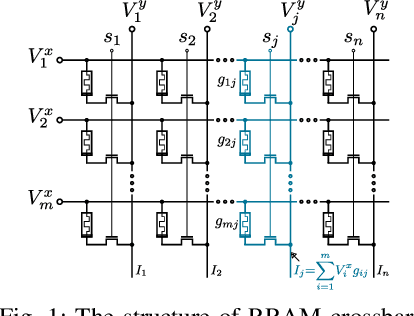
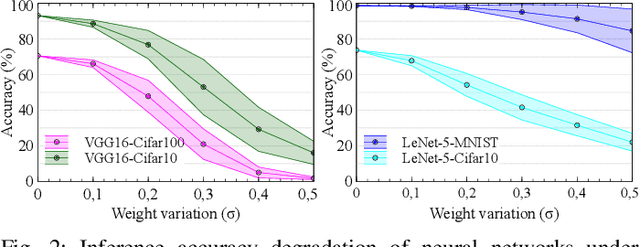

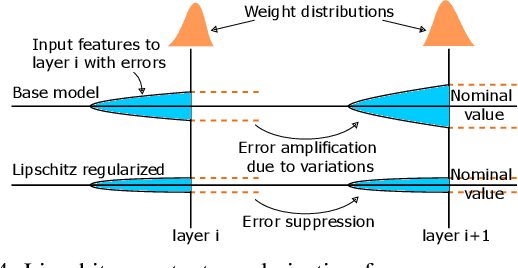
Abstract:The last decade has witnessed the breakthrough of deep neural networks (DNNs) in many fields. With the increasing depth of DNNs, hundreds of millions of multiply-and-accumulate (MAC) operations need to be executed. To accelerate such operations efficiently, analog in-memory computing platforms based on emerging devices, e.g., resistive RAM (RRAM), have been introduced. These acceleration platforms rely on analog properties of the devices and thus suffer from process variations and noise. Consequently, weights in neural networks configured into these platforms can deviate from the expected values, which may lead to feature errors and a significant degradation of inference accuracy. To address this issue, in this paper, we propose a framework to enhance the robustness of neural networks under variations and noise. First, a modified Lipschitz constant regularization is proposed during neural network training to suppress the amplification of errors propagated through network layers. Afterwards, error compensation is introduced at necessary locations determined by reinforcement learning to rescue the feature maps with remaining errors. Experimental results demonstrate that inference accuracy of neural networks can be recovered from as low as 1.69% under variations and noise back to more than 95% of their original accuracy, while the training and hardware cost are negligible.
Experimental Comparison of Cap and Cup Probabilistically Shaped PAM for O-Band IM/DD Transmission System
May 18, 2022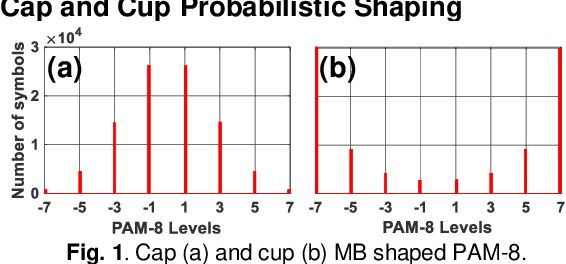

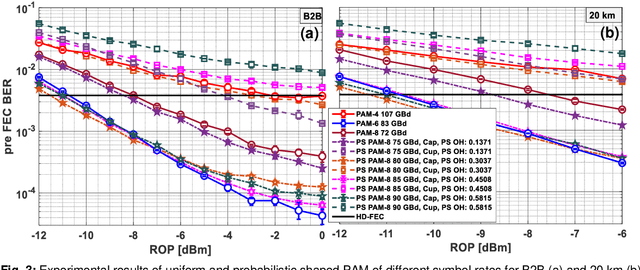
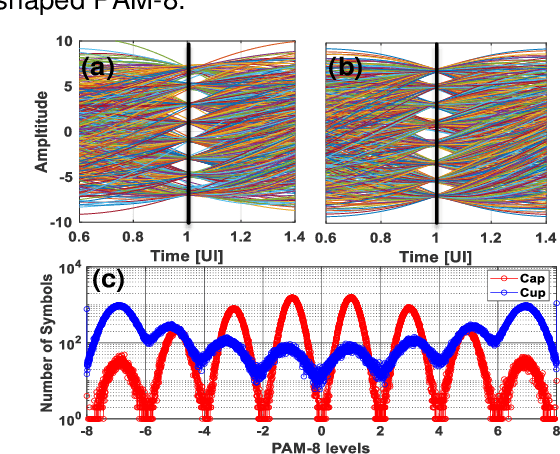
Abstract:For 200Gbit/s net rates, uniform PAM-4, 6 and 8 are experimentally compared against probabilistic shaped PAM-8 cap and cup variants. In back-to-back and 20km measurements, cap shaped 80GBd PAM-8 outperforms 72GBd PAM-8 and 83GBd PAM-6 by up to 3.50dB and 0.8dB in receiver sensitivity, respectively
* Originally published in ECOC-2021. We have updated Figure 3. The change also affects the overall outcome. In contrast to the published version, compared to uniform PAM-8 72 GBd, PS-PAM-8 80 GBd performance is updated to 3.50 dB instead of 5.17 dB, while for PAM-6 83 GBd the gain becomes 0.8 dB instead of 2.17 dB. The changes are adapted in all sections except the experimental setup and DSP section
1.71 Tb/s Single-Channel and 56.51 Tb/s DWDM Transmission over 96.5 km Field-Deployed SSMF
Aug 04, 2021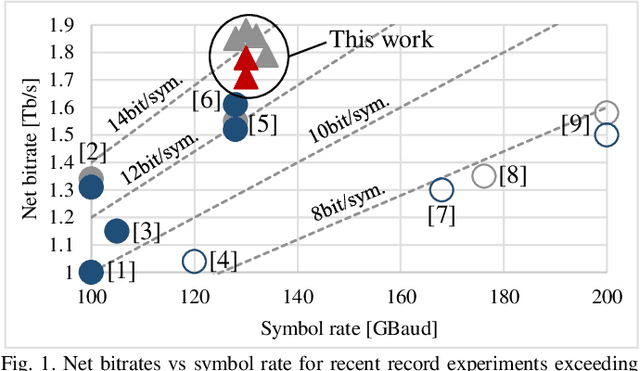
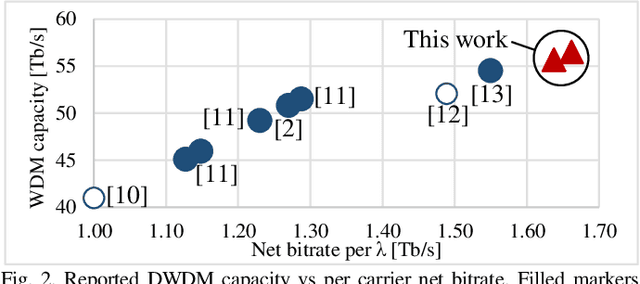
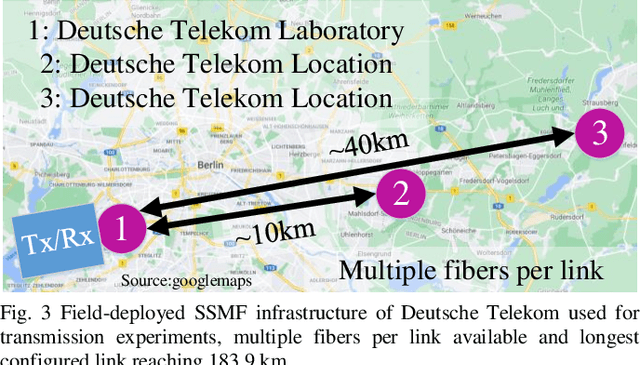

Abstract:We report an industry leading optical dense wavelength division multiplexing (DWDM) field trial with line rates per channel exceeding 1.66 Tb/s using 130 GBaud dual-polarization probabilistic constellation shaping 256-ary quadrature amplitude modulation (DP-PCS256QAM) in a high capacity data center interconnect (DCI) scenario. This research trial was performed on 96.5 km of field-deployed standard single mode G.652 fiber infrastructure of Deutsche Telekom in Germany employing Erbium-doped fiber amplifier (EDFA)-only amplification. A total of 34 channels were transmitted with 150 GHz spacing for a total fiber capacity of 56.51 Tb/s and a spectral efficiency higher than 11bit/s/Hz. In the single-channel transmission scenario 1.71 Tb/s was achieved over the same link. In addition, we successfully demonstrate record net bitrates of 1.88 Tb/s in back-to-back (B2B) using 130 GBaud DP-PCS400QAM.
 Add to Chrome
Add to Chrome Add to Firefox
Add to Firefox Add to Edge
Add to Edge